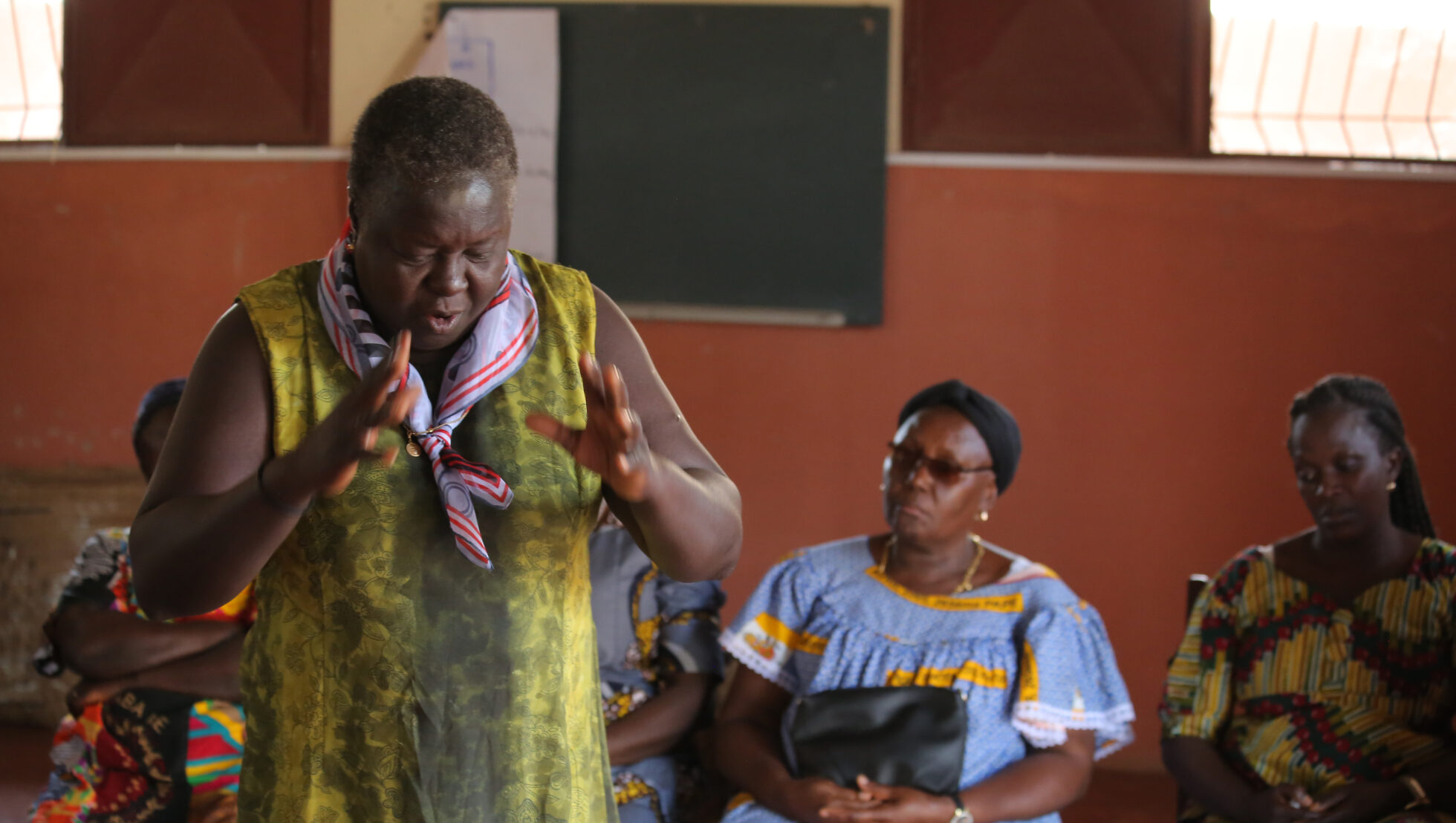Through years of programming experience in post-conflict contexts, Interpeace has learned first-hand that inclusion, particularly of marginalized and historically excluded groups, is fundamental for the sustainability of peacebuilding efforts. Gender, as seen through an intersectional lens, is arguably one of the most profound sources of exclusion across cultures and contexts globally. Gender inclusive peacebuilding programming can both render peacebuilding efforts more sustainable and create opportunities for the transformation of norms and practices that perpetuate inequality based on gender and other identities.
There are many reasons as to why gender matters in peacebuilding. First and foremost, conflict dynamics are inherently gendered, which concerns both men and women and the intersectionality of their identities. Further, gender influences vulnerabilities that individuals face before, during, and after violent conflicts. As a result, gender influences the capacities of resilience exercised by individuals and groups in the face of the conflict. Moreover, gender norms have an impact on the way individuals and groups participate in and shape peace processes. Good gender-inclusive programming starts with gendered conflict analysis. For gender inclusive processes to positively contribute to peacebuilding efforts, they must go beyond representation and include opportunities and strategies for influencing. Inclusivity is more than equality of participation; it is also about greater equality of outcomes. Thus, advancing gender inclusivity and peacebuilding requires multisectoral partnerships.
Gender-inclusive peacebuilding programming comes with several challenges that practitioners must balance to ensure that their programming is effective and does no harm. Interpeace has identified some of the key aspects needed to leverage gender inclusion for sustainable peacebuilding, which is integral for long-term transformation towards peace.
For this reason, Interpeace has recently published “Ten Foundations for Gender Inclusive Peacebuilding Practice” which is a result of a reflection process that the organization undertook between 2017-2019 to examine the implementation of gender programming. It provides guidance on what practitioners should do to navigate challenges presented by gender-inclusive peacebuilding programming, to better understand gendered dynamics of conflict and to develop effective strategies to leverage gender inclusion for more effective peacebuilding programming and, ultimately, advance gender equality.
The application of the Ten Foundations requires institutional commitment, the development, revision, and enhancement of tools, practices and processes, and a continuous process of assessment, learning and innovation to ensure that peacebuilding programming is more effective, sustainable and gender-inclusive. For Interpeace, this is fundamental for the pursuit of the institution’s change framework and the application of its principles and approaches.


